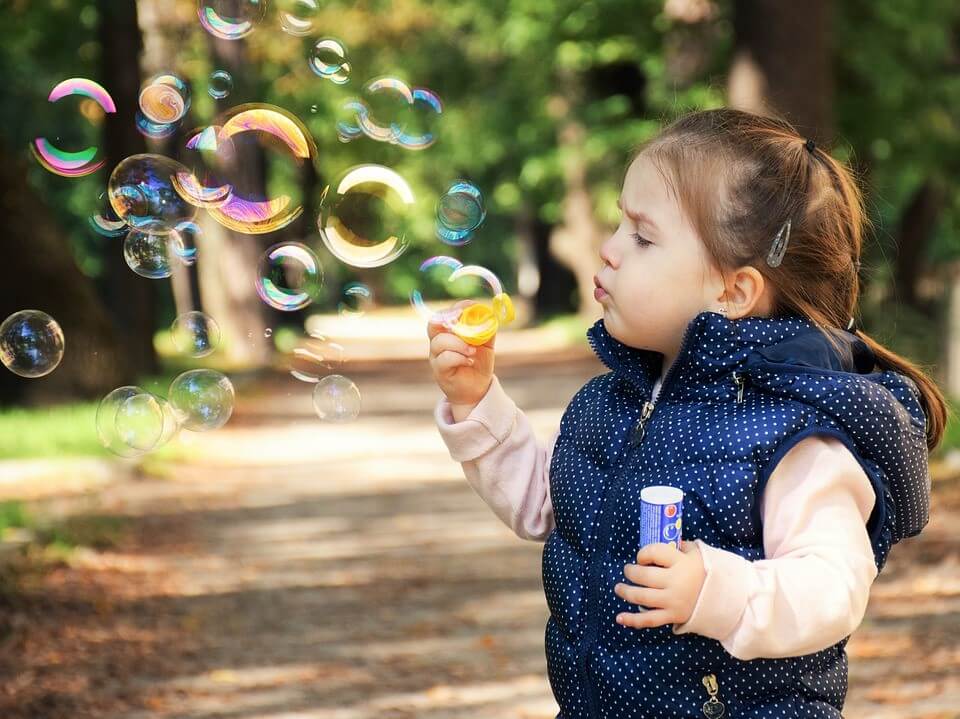
Children learn best when they are stimulated in a variety of ways, free from limitations. This is why it’s important for them to get out in the fresh air to really explore the world around them. If you’re struggling to pry your kids away from television and computer screens, then you’ll find this very guide useful.
Whether you plan on visiting a local park or spending some more time in the garden, there are plenty of ways that you can help to boost your children’s mental and physical development, whilst having lots of fun together at the same time. We’ve compiled some helpful tips for anyone who wants to show children the wonders of the natural world and have them wanting to spend all their time outside learning through play.
Everything you need is on your doorstep
It can be frustrating when our children come home with a brand new piece of clothing that has been creased or stained. However, top priority for all parents has to be their children’s development. One of the most effective ways to encourage children to be curious explorers is to let them experience the great outdoors. If you’re wary about the dirt and mess that’s associated with outdoor play, then all you have to do is dress your children appropriately for the occasion in old clothes and shoes. Children don’t care about getting grass stains on their clothes or paint in their hair, especially when they’re having fun.
Sensory development in the early years
Your child’s brain is developing at a magnificent pace during these early years and it’s a crucial time for developing a range of skills such as spatial awareness, problem-solving skills and a connection with nature. Children also start to lay the foundations of understanding boundaries at a young age. By giving them a safe environment to play in, such as a garden or park, and setting clear boundaries, their trust in your instruction will grow. Rather than telling them hypothetically what is and isn’t safe, they will learn that from experience.

Ask them questions
Most parents will be accustomed to their children repeating the phrase “But why?”. You should realise that questions go both ways. If you have an inquisitive child, there’s nothing wrong with admitting that you don’t know all the answers. The important thing is to show them how to find it out. If you don’t know the name of that particular flower, then look it up. Give plants and trees wacky new names and use them to create imaginative stories. Why not? You may soon find that your own inner child enjoys it just as much.
Let them choose
Think of outdoor play as an opportunity to help them to build your child’s sense of independence. Take a spare pair of clothes ready in case your child gets wet while playing, but encourage them to take the initiative and get changed themselves when they feel soggy. You can offer help if they need it. If they don’t need any assistance, then stand back and let them figure it out for themselves. This may seem simple, but it’s another learning opportunity for children, as valuable as any other.

Keep a scrapbook
Children love to collect things so why not provide them with a place to display their new findings. All you need is a simple notebook that can be turned in to a ‘wildlife diary’. Encourage your children to keep record of birds in the garden or other wildlife activity in a way that interests them. You can take photos and print them out to use in a scrapbook or write reports on days out.
You should aim to spend time outdoors with your children whatever the weather. Try not to get bogged down in the small amount of extra work that’s required to do a few extra loads of washing. Your little one may have spent the day building walls with coloured blocks, but they may also be laying the foundations of a career as an architect. They may have spent hours splashing in puddles and picking flowers, but they may have also been planting the seeds of a successful career in landscape gardening. These moments are extremely valuable to children, so it’s vital that their fun can be extended to the outdoors.
